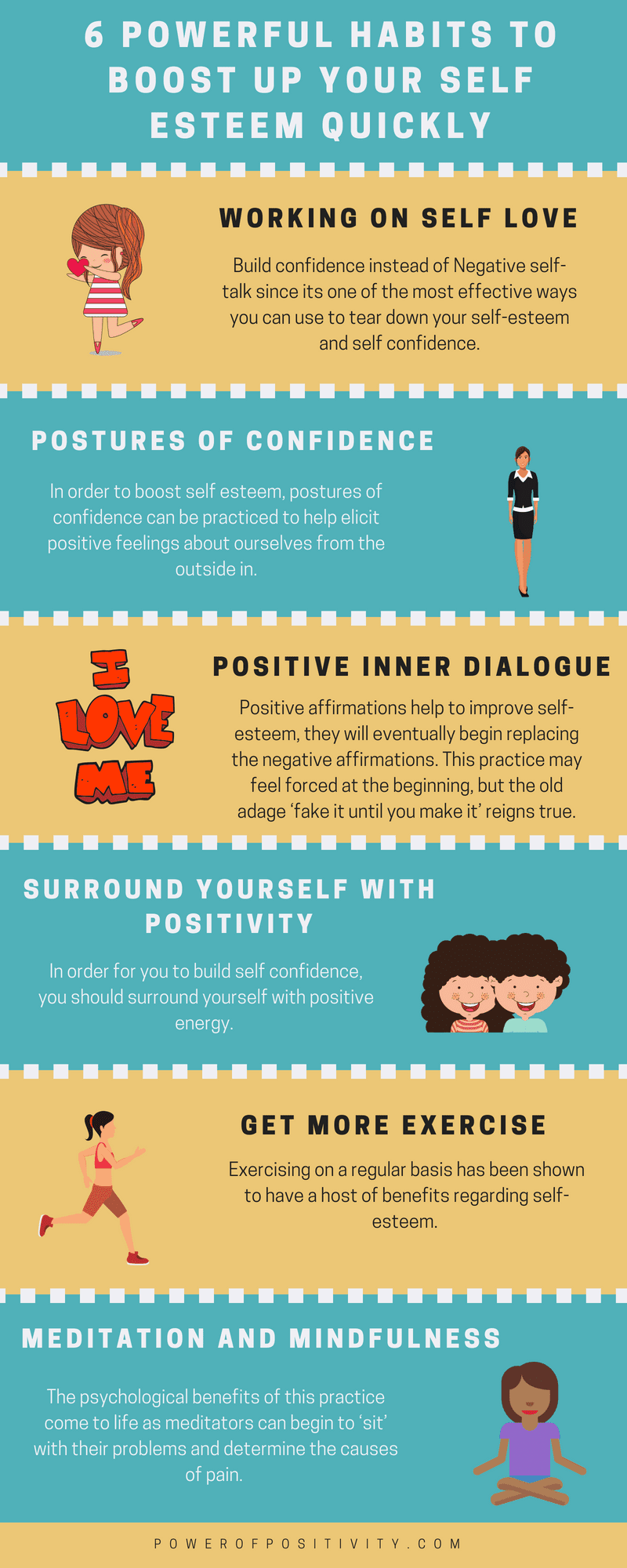It can be hard to live with someone or be in a romantic relationship with someone who suffers from poor self esteem. While you may see a great person with many admirable traits, they have a low concept of themselves. This is the same mode of living you want to avoid by loving yourself more. Why is this important? Read on to find out.
Why Your Self Esteem Matters
Learning to build self esteem is important. People with higher self esteem tend to handle stressful situations better. They are more confident in their abilities to cope with stress. Studies have shown that, even though some people are born with a predisposition to have high self worth, they aren’t necessarily happier or more successful. However, the flip side is that people with reduced self esteem may be more vulnerable to developing the symptoms of depression. Every problem that you face right now will eventually pass. You can just take advantage of these five things I did last month to improve my self perceptions because they really work.
1. Choose with care the statements you make about yourself.
Try to avoid using words that contribute to low self esteem. Words like “forever.” For the past few years, I have worked to build self esteem. But, I’ve also been saying things like: “I will be single forever” and “I will never find a relationship.” The words that you use shape your thoughts and emotions. Your mind tends to create your reality to fit the statements you make, whether positive or negative. Making poor evaluations of yourself can limit your experiences.
2. Attract more positive energies into your life by setting achievable goals.
In the past, you might have suffered from low self esteem because you held poor values about yourself and your worth. However, you have worked on that and you are going to keep building self esteem. This means that you may have to adjust your daily habits. Most importantly, learn to accept your mistakes. Treat your failures with love and understanding. View each day as a new opportunity to achieve your goals.
3. When you face a problem, focus on what’s in your power to change.
People with high self esteem accept their limitations and play to their strengths. They do things based on what is under their control. They don’t belittle themselves for what they can’t change or what they can’t control. People with high self esteem see each problem as something that can be solved, even if that means finding help. They are happy, and they celebrate their successes, both little and big. They read happiness quotes that inspire them.
4. Schedule breaks from work for what you love.
The next time there’s a problem at work and it takes all day to solve it, you need to promise yourself a reward (and keep your promise). “Once I finish this report, I will stop at the yogurt store and have a yummy smoothie.” Or, plan ahead. “Tomorrow, I’m going to get to work a little early and prepare for the meeting with my boss.”
5. Control your reactions to others who try to bring you down.
Dr. Phil once said that we either teach people to treat us with dignity and respect or we don’t. So treat yourself with love and respect; stay focused on daily success and building self esteem. Don’t let negative people steal your energy, put you down, make false statements about you, or hurt you. If you can, correct people who do bad things to you. Choose when to put yourself in difficult situations and how long you will stay in them, even at work. While we explained that people with low self esteem are at risk for depression, this doesn’t mean they must experience it or give into anxiety. In every situation, you can control your reactions.
Believe in yourself. You have the power to solve more problems than you might realize. I texted my HVAC guy on Father’s Day when my cooling system’s condensation leaked all over the laundry room. He didn’t respond all day. Frustrated, I got out the wet vacuum, sucked out the debris from the drain pipe, flushed it out with bleach water, and waited for the system to resume normal function. He never came, and I saved myself $100. I solved the problem by believing I could follow the steps he’d shown me the year before to address the same problem.

















